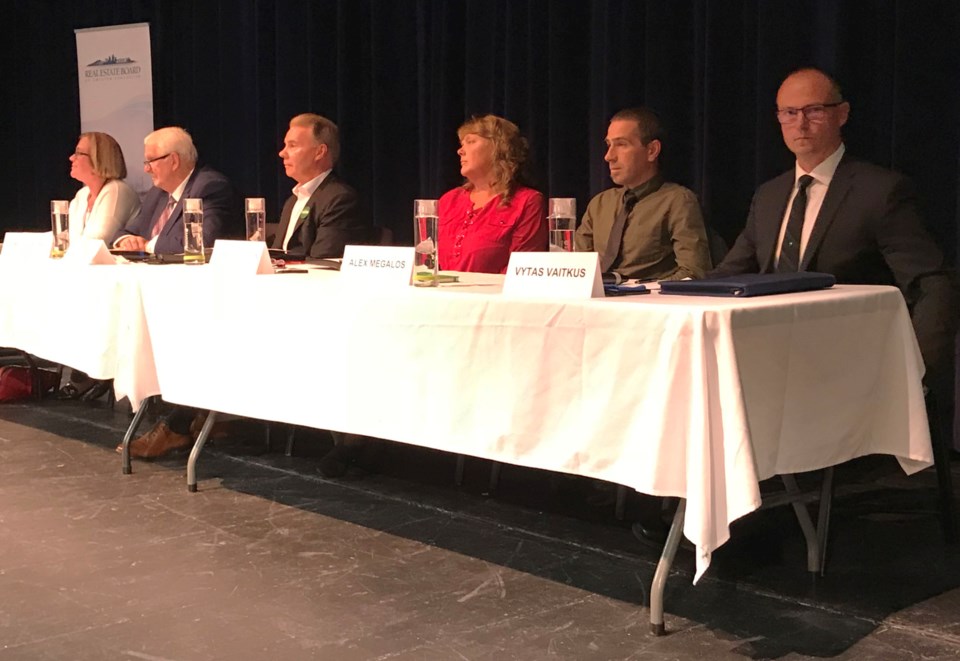It was the first time residents got to hear what all the Delta mayoralty candidates had to say in one room.
Sylvia Bishop, Jim Cessford, George Harvie, Moneca Kolvyn, Alex Megalos and Vytas Vaitkus took part in a debate at the South Delta Secondary theatre Wednesday evening, an event that saw a fairly large crowd show up to see what the hopefuls had to say on a range of questions.
Following opening remarks, each candidate got to answer the same questions, including how they’d expedite having a new crossing built from Delta to Richmond.
Bishop said the city needs to work in partnership with government to come up with a quick resolution, while Cessford said he is in favour of a bridge but is prepared to go with the safest and most cost-effective approach determined by the independent technical review for the government. Harvie noted his slate is the only one that continues to fight for a new bridge and he vowed to continue to the pressure. Kolvyn said the people of Delta are opposed to a bridge, asking “why there isn’t a referendum on this and the casino?”
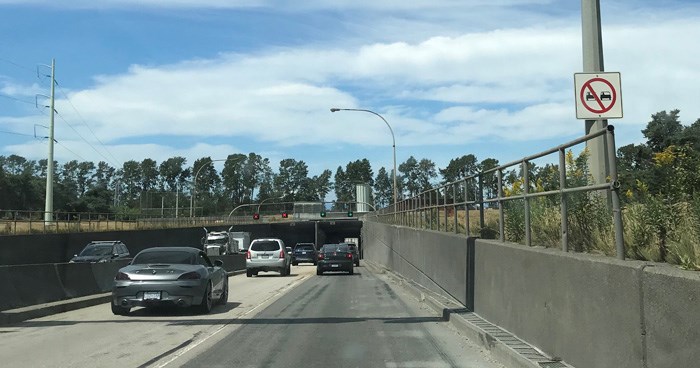
Megalos asked for a show of hands who supported the bridge and who favoured a tunnel, which drew a slightly larger show for a tunnel. “It’s safer and we could have that built much sooner,” he said.
Vaitkus said the stalled crossing project needed to get out of an “analysis paralysis” and then he drew applause when saying a rapid rail solution should also be explored.
When asked about housing affordability, Cessford said the city needs to work with developers, trying to ensure that 15 to 20 per cent of new units can be used for co-op or rental housing.
Harvie, noting a partnership with Metro is important, pointed to the Southlands development as a good opportunity to see new forms of housing, while Scott Road is “primed for redevelopment.”
Kolvyn said there are plenty of great ideas that the community can bring forward but city hall won’t listen, while Vaitkus said measure are needed to make sure foreign speculators don’t buy up whatever new housing stock is created.
Bishop pointed out her platform includes a housing summit and that other communities have great ideas that Delta can “beg, borrow and steal” to create a made-in-Delta solution.
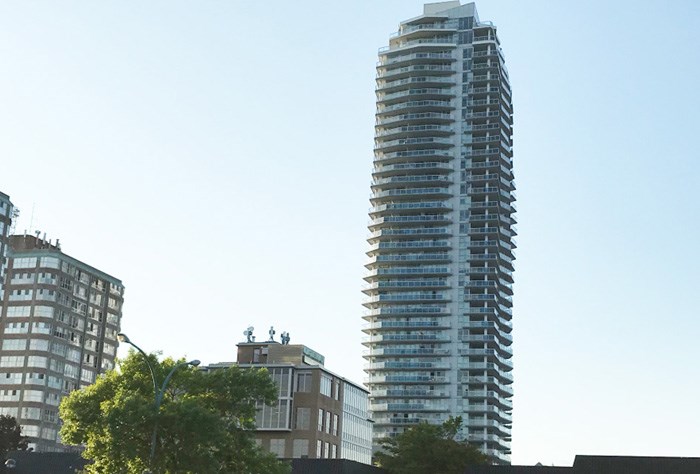
Asked about Delta having an economic development office, Harvie, who during the debate pointed to his experience and the range of ages on his slate, talked about the positives Delta has seen during his time as city manager, but warned a lack of a bridge will stall further economic development.
“You can have all the economic plans you want but until you get that bridge you’re in trouble,” he said.
Bishop noted an economic development office is part of her platform, while Cessford noted Delta is one of the few Lower Mainland cities without one, adding he’d also tie it in with tourism.
On the question of tourism, Harvie drew some moans when suggesting the new Delta hotel/casino complex will create new opportunities and that a tourism office could be located there.
“We need to ensure we work with this asset rather than ignore it,” he said.
On the issue of the retail sale of cannabis in Delta, Megalos said it would be important to keep dispensaries together in certain areas, while Vaitkus, saying he’s deeply concerned about the upcoming legalization because marijuana is a gateway drug, agreed with the city’s new zoning bylaw prohibiting the shops in all zones. Bishop said she wants to see production facilities in industrial zones, adding she would also fight for Delta’s fair share of taxation revenue.
Saying distribution will also be a big issue, Cessford said, “We’re going to have to learn to stay on top of this and keep it away from young people.”
Harvie pointed out Delta’s new zoning which gives council the final say where potential stores could locate.
When asked about the environment, most drifted to the importance of protecting farmland with Bishop saying, “I would fight to defend every square inch of farmland from development.”
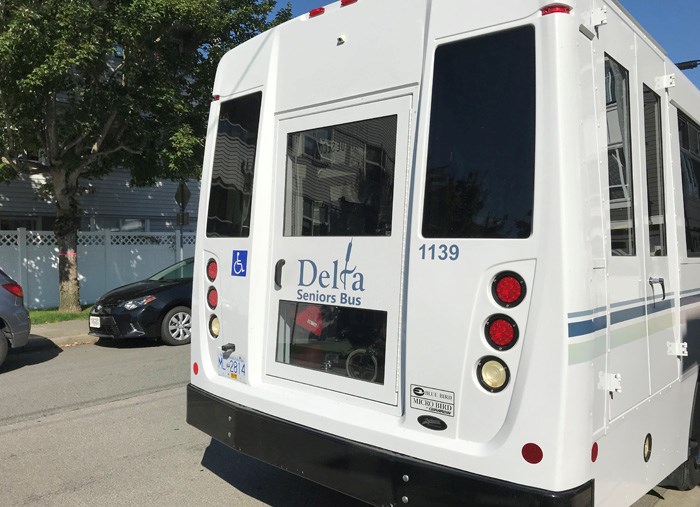
Asked what they would do to assist seniors, most were in agreement further expansion of the seniors’ bus was needed.
On development in Ladner Village and, in particular, revitalizing Chisholm Street, all said more needs to be done.
Megalos, who provided some levity in the debate, said, “right now, there’s no reason for people to go down there. We need to find a reason for them to go down there.” He suggested perhaps having a bar would be a good start. Kolvyn said the city should have done its due diligence before “making a real poor purchase” for the still vacant Seven Seas site years ago.
Vaitkus noted he doesn’t want to see the village “developed as another strip mall” and that it could become a great artisan hub.
Bishop noted the village received “a slight Botox treatment” but redevelopment and new businesses will come with more housing units in the area.
Cessford described the area as a “best kept secret” which needs a renewal plan, while Harvie warned “we can’t let it stay the way it is, it’s dying” but he’d change that with a special committee to focus on it.
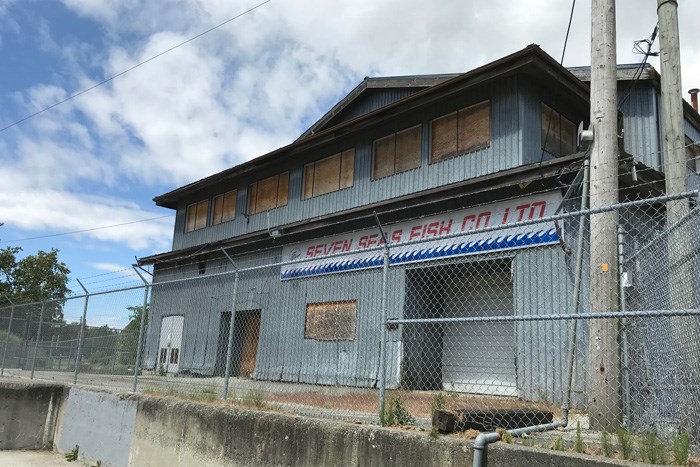
Some of the other questions included bike lanes, whether they supported a new brewery at Boundary Bay and electoral reform.
On what they would do to get a pedestrian overpass at Highway 17A and 52 Street, Harvie, noting he lives at Tsawwassen Springs and would never use the current crosswalk, said it’s an issue he would push to get resolved. If the mall had been built in Delta, the developer would have been required to provide such an important amenity, he said.
Kolvyn said the Tsawwassen First Nation isn’t interested in dealing with Delta city hall because the relationship was not good, an accusation echoed by Bishop who talked about “soured relationships including the TFN” and the need to foster new and successful relationships with agencies.
The debate was organized by the Delta Chamber of Commerce and sponsored by the chamber, the Real Estate Board of Greater Vancouver and the Fraser Valley Real Estate Board. A second mayoralty debate is scheduled for Wednesday, Oct. 10 at North Delta Secondary, also from 7 to 9 p.m.
